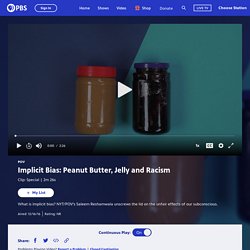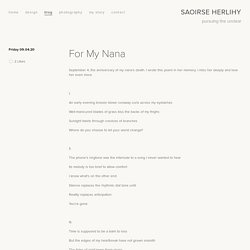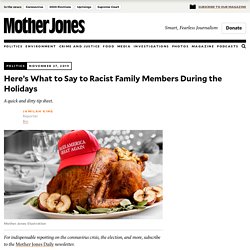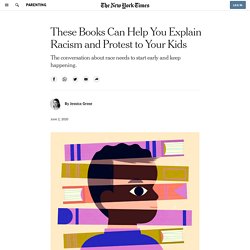

Black History in Two Minutes or so. Implicit Bias: Peanut Butter, Jelly and Racism. Skip to Main Content Use one of the services below to sign in to PBS: You've just tried to add this video to My List.

But first, we need you to sign in to PBS using one of the services below. You've just tried to add this show to My List. But first, we need you to sign in to PBS using one of the services below. By creating an account, you acknowledge that PBS may share your information with our member stations and our respective service providers, and that you have read and understand the Privacy Policy(opens in new window) and Terms of Use(opens in new window).
You have the maximum of 100 videos in My List. We can remove the first video in the list to add this one. Edit My List You have the maximum of 100 shows in My List. We can remove the first show in the list to add this one. Beyond golden rule. Black Freedom Struggle in the United States: A Selection of Primary Sources. Blog — Saoirse Herlihy. To Gorham educators, I have tried to think about the words I want to say so many times, but I have not been ready.

However, the students of color and the Black students in this school district deserve more out of their education. They deserve to feel safe and heard, and I believe that starts by looking critically at the curriculum, school culture, and educational practice. I’m not an accredited professional in academia, nor do I pretend to be. The only thing I want to do is use my voice to tell my story. Since I moved to Gorham in first grade, I have been simultaneously invisible and hyper-visible.
When I got cornrows in elementary school, students would touch my hair without asking. As I moved through middle school, I experienced more of the same. I experienced microaggressions like these on almost a daily basis. Similar to elementary school, none of the curricula in middle school highlighted the Black experience or showcased any authors of color or history of marginalized groups. Discussions: What Does it Mean to be Anti-Racist?
Among Family. Here’s What to Say to Racist Family Members During the Holidays. Mother Jones illustration For indispensable reporting on the coronavirus crisis, the election, and more, subscribe to the Mother Jones Daily newsletter.

It’s holiday season! Which means it’s time to have some potentially awkward conversations with family, on top of the usual awkward conversations that dredge up old resentments and new disappointments. Lots has already been written about today’s polarized political climate, and if they want, people can more or less successfully avoid being in spaces that run completely counter to their core beliefs. But the family dinner table isn’t one of those places.
This brings me to the time I recently spent at the Chicago Humanities Festival interviewing the author and scholar Dr. So who better to ask about how to confront racist family members before the holidays? “Are you co-enablers by not discussing it with them? So then the question becomes: If you choose not to be that person, who’s going to do it? Not Available <iframe> Player Code. Anti-Racism Books for Kids. As protests over the killing of George Floyd (and Ahmaud Arbery and Breonna Taylor) spill into a second week, many parents are wondering how to talk about the deaths and unrest with their children.

But just as important in the long run, especially for nonblack parents, is how to keep the conversation about race and racism going when we’re not in a moment of national outrage, and to make sure all children see black people as heroes in a wide range of their own stories, and not just as victims of oppression. In this moment, try to address the killings and protests honestly and in an age appropriate way, said Y. Joy Harris-Smith, Ph.D., a lecturer at Princeton Theological Seminary and the co-author of the forthcoming “The ABCs of Diversity: Helping Kids (and Ourselves!)
Embrace Our Differences.” Dr. Older children will be much more aware of what’s going on right now. Dr. “I see students clamoring for books that speak to heart, not oppression based on civil rights,” Taylor-Butler added. Project READY: Reimagining Equity & Access for Diverse Youth – A free online professional development curriculum.